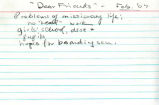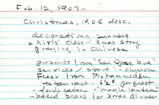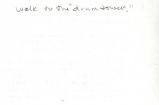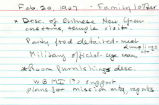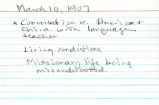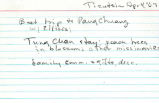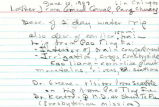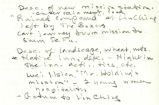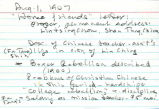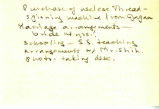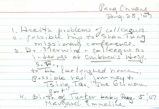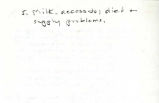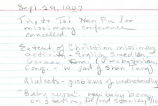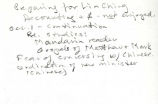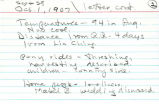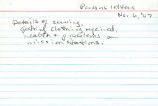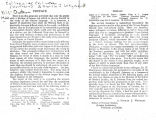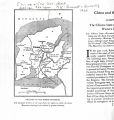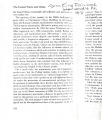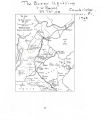| OCR Text |
Show TRIUMPH AND FIASCO chang región oí Chihli as wrell as in Shantung over the border. 'They were said [lie writes] to be about to act out the motto on their flag: "Protect the Empire; Extermínate Foreigners".' But it was not until the P'ingyüan afiray of 18 October that the missionary body as a whole became aware that they were witnessing what might well become a general uprising. The Diplomatic Body in Peking, meanwhile, were preoccupied with the business arising from the ' Battle of the Concessions' and it was the murder of the British missionary, Brooks, of the Society for the Propa-gation of the Gospei at a place fifty miles south of Chinan on 31 December 1899 wdiich first aroused them to the real seriousness of the trouble.1 On 5 January 1900 Sir Cíaude MacDonald, the British minister, addressed a despatch to the Marquis of Salisbury (it was sent by sea and was received on 19 February) in which he stated: For several months past the northern part of the Province of Shantung has been disturbed by bands of rebels connected with various Secret Societies, who have been defying the authorities and pillaging the people. An organiza-tion known as the ' Boxers' has attained a special notoriety, and their ravages recently spread over a large portion of Southern Chihli, where the native Christians appear to have suffered even more than the rest of the inhabitants from the lawlessness of these marauders. The danger to which, in both provinces, foreign missionary establishrnents have been exposed has been the subject of repeáted representations to the Chinese Government by others of the foreign representatives-especially the Germán and United States Ministers-and myself. In his further despatches of 16 and 17 January MacDonald reported the pressure he liad brought to bear on the Tsungli Yamen to recom-mend strong measures for repressing the Boxers. The whole of the present difficulty (MacDonald said) could be traced to the attitude of the late Governor of Shantung, Yü-hsien, who had secretly encouraged the seditious secret society known as 'the Boxers'. The Imperial edict expressing sorrow for the murder of Brooks and enjoining strong measures was satisfactory as far as it went, but Her Majesty's Government required more than mere words. MacDonald enclosed a trans-lation of the Imperial decree dated 11 January, remarking that it was 'regarded in some quarters with misgiving' since it was Hable to be read as admitting the possibility of excuse for the existence of such 'societies' as the ' Boxers'. 'If the promise of the first edict (5 January) is not fulfilled, I may then use it as a proof of want of sincerity on the part of the Chínese Government.' 243 |



